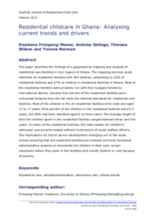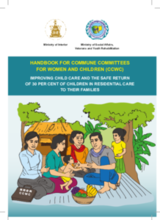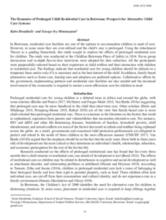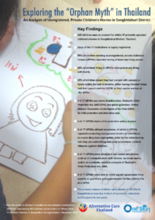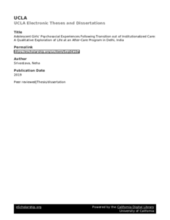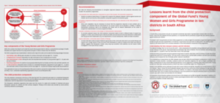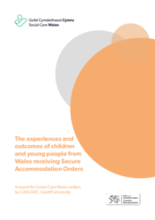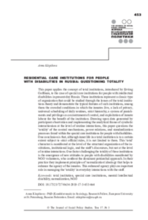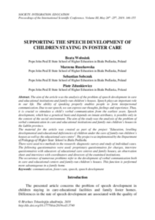Displaying 551 - 560 of 1511
The paper describes the findings of a geographical mapping and analysis of residential care facilities in four regions of Ghana.
This handbook highlights the role commune committees for women and children (CCWCs) can play in support of implementing the Action Plan for improving child care, which is being carried out in five priority provinces in Cambodia. The Action Plan intends to safely return 30 per cent of children in residential care to their families by the end of 2018, as well as establish effective preventive and gatekeeping mechanisms to prevent unnecessary family separation. This handbook is useful in strengthening CCWCs’ roles and enhancing their knowledge and capacity to protect children in their communes.
Using the Attachment Theory as a guiding framework, this study sought to explore the effects of prolonged residential care for children.
This summary report presents key findings and recommendations from an analysis of unregistered, private children's homes in Thailand's Sangkhlaburi District.
This dissertation study aimed to describe and understand adolescent girls’ subjective experiences of life in an after-care facility after transitioning out of institutionalized care in Delhi, India.
This briefing paper reports on the lessons learnt from a process evaluation of the child protection component of the Global Fund’s Young Women and Girls (YWG) programme, a multi-pronged HIV prevention programme targeting young women and girls implemented in 10 districts in South Africa.
This study investigated the experiences of the cohort of young people from Wales receiving secure orders between 1 April 2016 and 31 March 2018.
This paper applies the concept of total institutions, introduced by Erving Goffman, to the case of special care institutions for people [including children] with intellectual disabilities in present-day Russia.
The aim of the article was the analysis of the problem of speech development in care and educational institutions and family-run children’s houses in Poland.
This companion paper provides a snapshot of current practice of therapeutic residential care services conducted in Australia.

